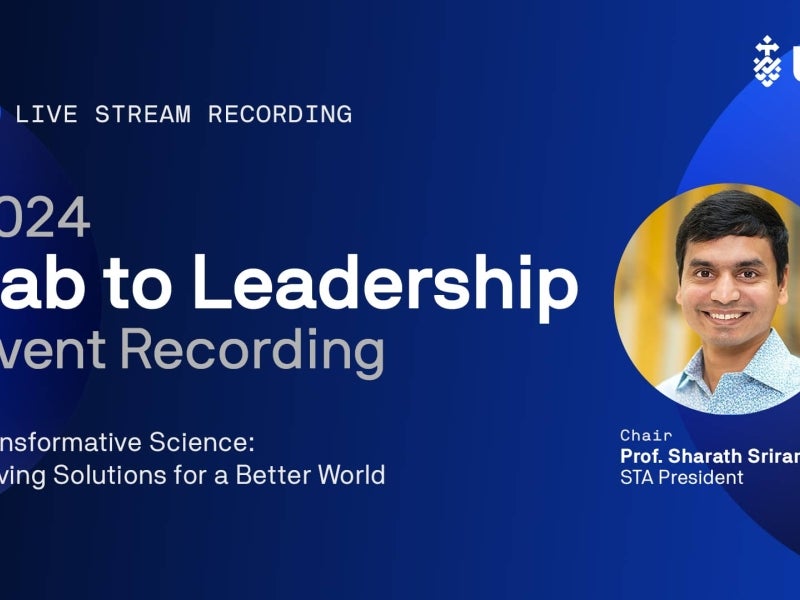Graduate Certificate in Sustainable Leadership
Jan, Mar, May, July, Aug, Oct
8 months
(minimum)*
Graduate Certificate in Sustainable Practice
Jan, Mar, May, July, Aug, Oct
8 months
(minimum)*
Graduate Certificate in Sustainable Energy Technologies
Jan, Mar, May, July, Aug, Oct
8 months
(minimum)*
Become a catalyst for change and pave the way for a more sustainable future
Broaden your employability with universally essential transferable skills
A pathway to a fulfilling career in energy innovation, where sustainability is paramount
Unifying science, leadership and policy to provide a holistic approach to sustainable energy
Career outcomes
Graduates from UTS Online Sustainability courses find themselves equipped for various roles:
- Renewable Energy Leader
- Sustainability Manager
- Sustainability Consultant
- Corporate Sustainability Consultant
- Energy Consultant
- Senior Energy Consultant
- Renewable Energy Consultant
- Carbon Capture Consultant
- Energy Technologist
- Government Science Advisor
- Business Development Manager (Energy)
- Academia
- Renewable Energy Engineer
- Electrical Design Engineer (Energy and Battery)
- Energy Storage Consultant Sustainability Specialist
- Infrastructure Advisor
- Technical Service Engineer
Want to learn more about the online sustainability courses?
Not only do we have the right tools to help you in your studies, we also have a student support team who care about your success.
Download a course guide Speak to an Enrolment Advisor
The diagrams below illustrate the various pathway options available for students who complete the graduate certificate courses and wish to progress to the master’s course. These pathways provide flexibility and allow students to tailor their learning experience to their individual needs and interests.
With Recognised Prior Learning (RPL), you can accelerate your path to graduation.
Upon successful completion of the Graduate Certificate in Sustainable Leadership, Sustainable Energy Technologies, or Sustainable Practice, you will be eligible to enrol in the Master of Sustainable Leadership.

Upon completing the Graduate Certificate in Sustainable Energy Technologies or Graduate Certificate in Sustainable Practice, you will have the opportunity to enrol in the Master of Sustainable Energy or Master of Sustainable Leadership.

UTS Online offers unparalleled opportunities for professional development, providing access to cutting-edge tools and expert insights that keep you ahead of industry trends. With flexible learning paths, you can tailor your education to fit your lifestyle and commitments, striking a balance between academic pursuits and personal responsibilities.
Graduating with the same qualifications as on-campus peers, you'll also acquire future-proofed skills, ready to propel your career to the next level while building your network.
Our intuitive online platform ensures a seamless learning experience, allowing you to navigate your academic journey effortlessly and stay on track to success. Moreover, our supportive network of Student Success Advisors guides you from enrollment to graduation, ensuring you receive personalised support every step of the way.
With UTS Online, you not only gain essential skills for your career but also build valuable connections with peers and industry professionals, enhancing your prospects in today's competitive job market.

Life will always have competing priorities, but those who take today as their 'day one' don't just talk about 'one day'. Click here for essential factors to consider when deciding if now is the right time for postgraduate study.
Remember, we are always just an email or phone call away to help
The first step is to make the commitment to study 20 hours a week for 7 weeks at a time. Click here for example study schedules, iincluding someone who works full time and shift work.
We're here to assist, providing tools and resources to support you from day one to graduation. Schedule a call-back
We understand that choosing the right course can be a significant decision. At UTS Online, we provide a range of benefits to help you make an informed choice:
- Learning from leaders: Our courses are designed by experts in tech and innovation, ensuring you receive a top-quality education that equips you with the skills to excel in your field.
- Flexible learning: We offer 7-week subjects and a user-friendly online learning environment, making it convenient for working professionals like you to balance study with other commitments.
- Personal support: Our dedicated Student Enrolment Advisors are here to assist you in navigating your course options. They can provide personalised guidance based on your career goals and interests.
- Networking opportunities: Through our online study platform, you'll have the chance to connect with peers and industry professionals, enhancing your network and potential career opportunities.
So, if you're unsure about which course aligns best with your aspirations, don't hesitate to reach out to our Student Enrolment Advisors. They are here to support you in making the right choice for your future. Schedule a call at this link or reach out to us on live chat.
We prioritise student success and innovate our online learning without sacrificing quality. For many, the online environment is more user-friendly and intuitive than they expected.
See here for practical tips on managing your time efficiently, staying focused, maintaining motivation and prioritising your health, so you can achieve your career goals.
Remember, we are always just an email or phone call away to helpYou can expect equal educational quality online as on campus. UTS Online courses are specifically designed for working professionals, offering quality education no matter your location or work schedule.
For more information, schedule a call at this link or reach out to us on live chat.






